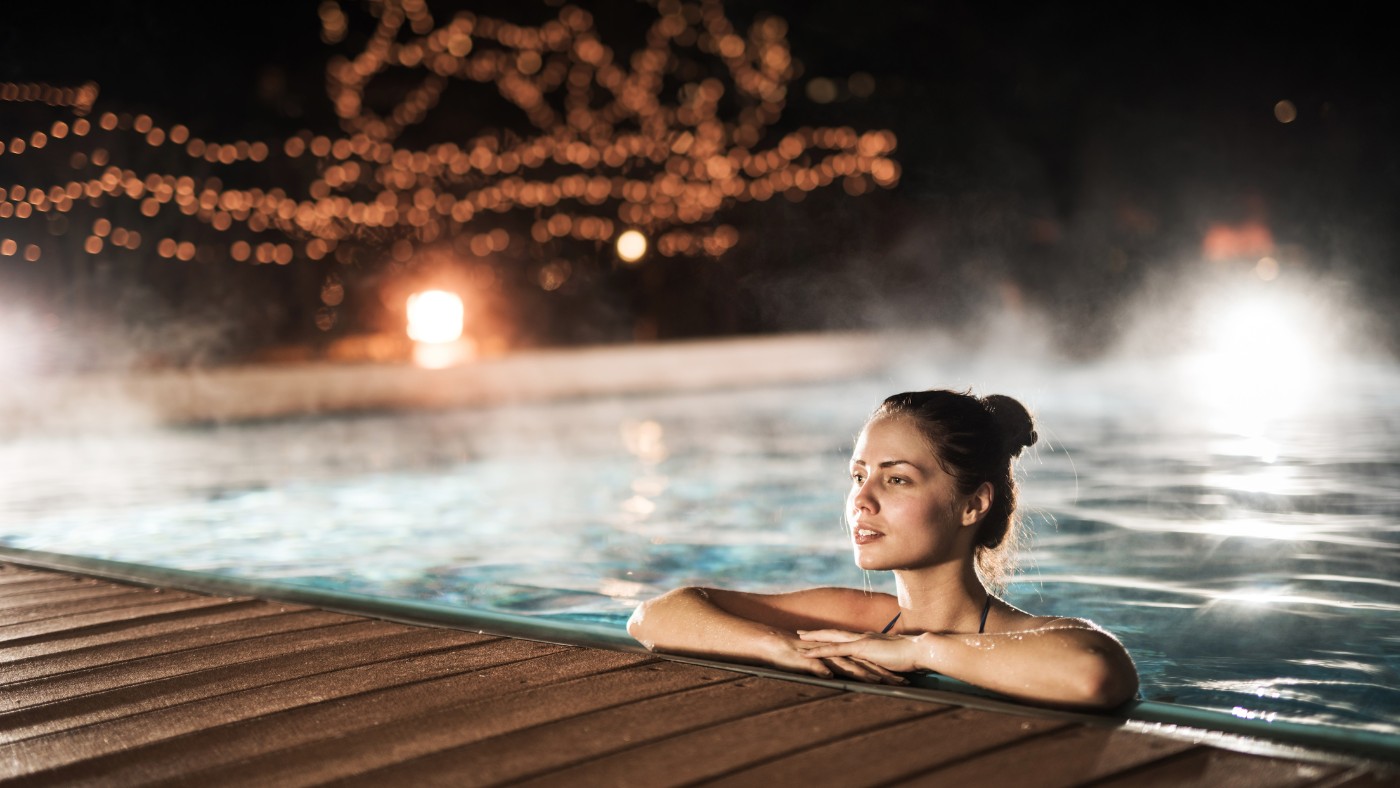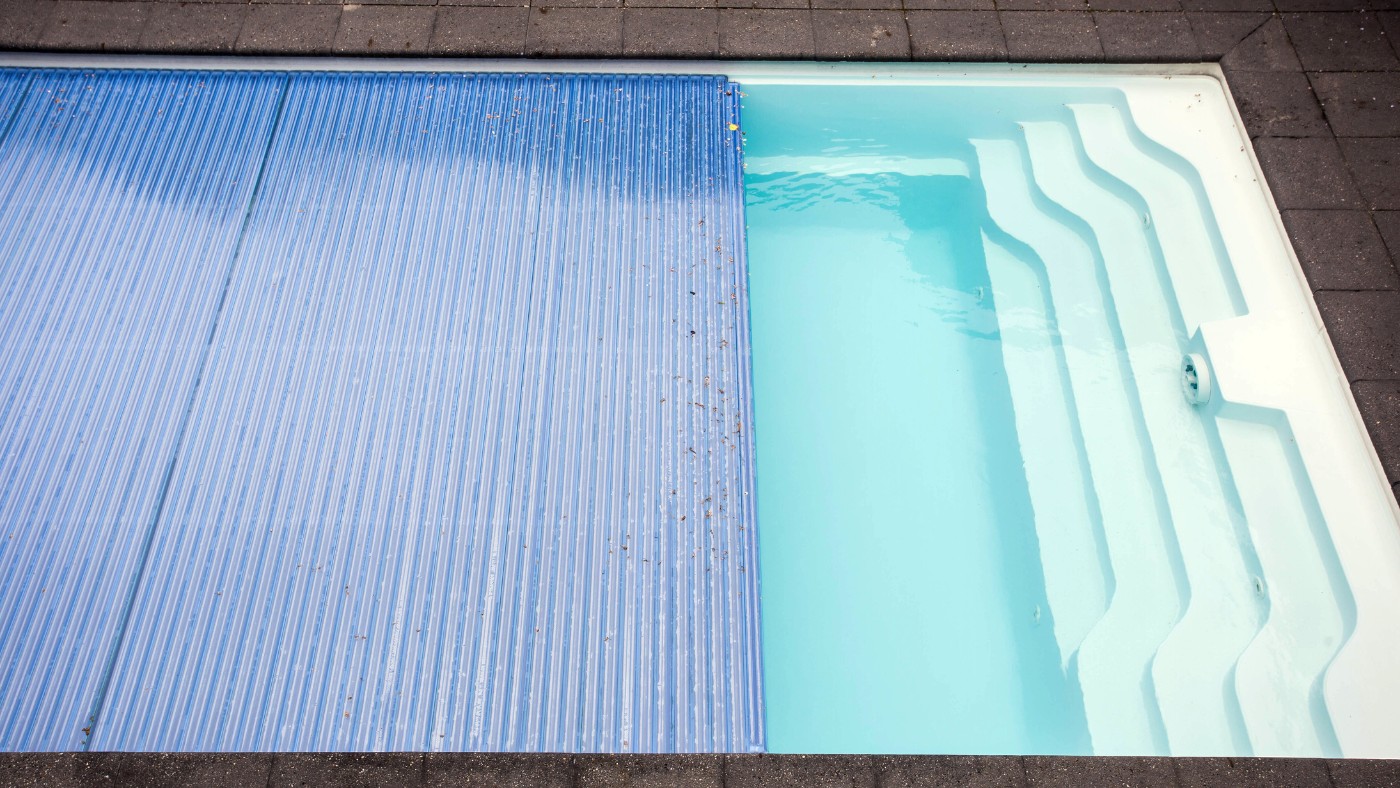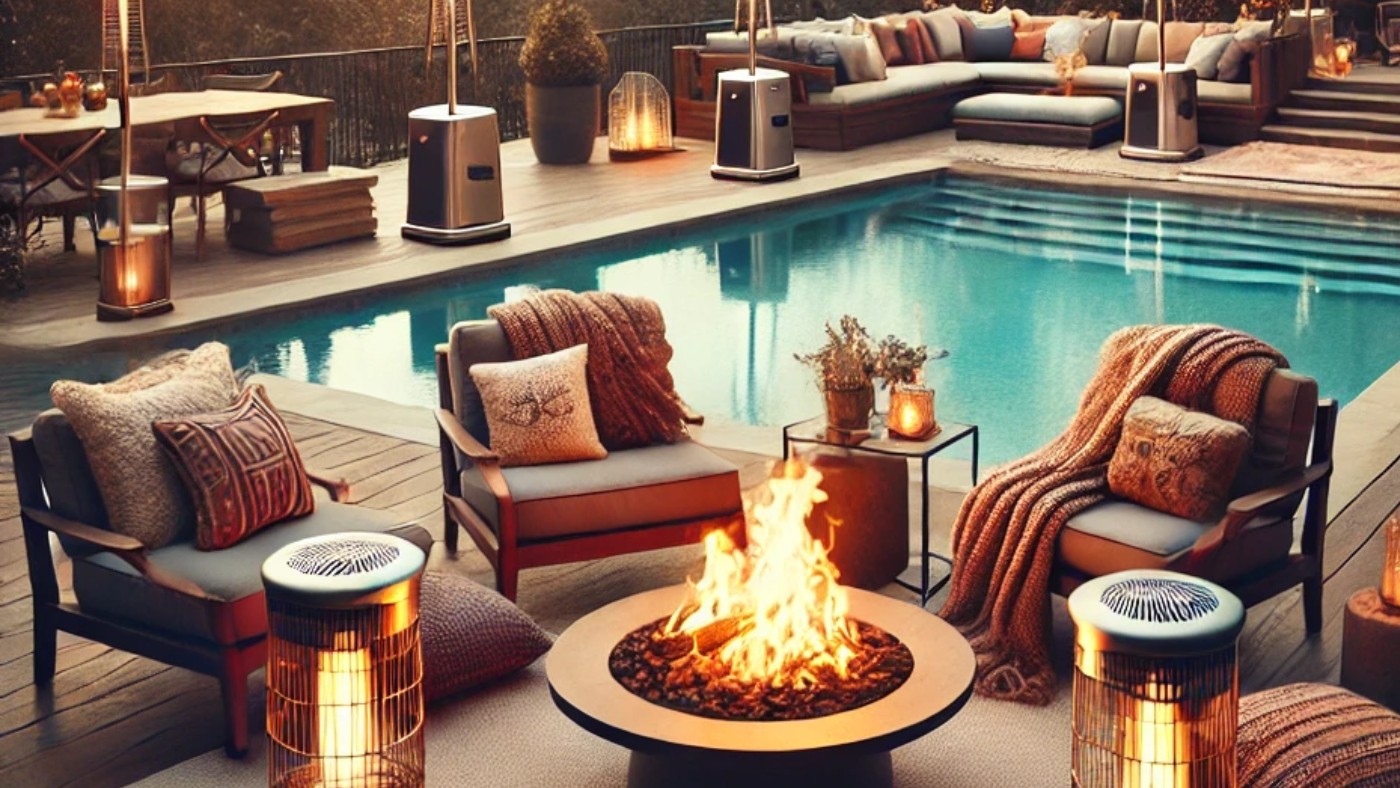Keeping your swimming pool open and running during the winter months is a fantastic way to enjoy the luxury of swimming all year, especially in warmer climates like the Sunbelt. However, maintaining a pool in the winter requires different care and attention compared to the summer season. Let’s walk through some key tips for keeping your pool in great condition so you can continue to enjoy it without interruption.

Why Maintain Your Pool in Winter?
Winter doesn’t always mean harsh, freezing conditions. In regions where temperatures stay mild, pools can be open all year. However, without proper care, cold weather can still introduce challenges that affect your pool’s cleanliness, safety, and functionality. Maintaining a pool in the winter keeps your water chemistry balanced, prevents damage to equipment, and ensures it’s ready for daily use. Whether your pool serves as a retreat for relaxation or a fitness routine, the right maintenance ensures that your pool is always ready when you are.
Essential Winter Pool Maintenance Tips
Proper pool care during the winter isn’t just about preserving the pool’s aesthetic appeal; it also ensures that your equipment functions efficiently and extends the life of your pool’s structure. The following tips will help keep your pool in top shape during the colder months.
Monitor Water Chemistry Regularly
Just like in the summer, balancing your pool’s water chemistry in winter is vital. Lower temperatures affect water balance; a decrease of as little as 10 degrees can disrupt your pool chemistry. So even though the water might not be used as frequently, it’s crucial to keep the chemical levels within optimal ranges. You should test levels and make any necessary adjustments weekly. This includes monitoring:
- pH levels: Keep the pH between 7.2 and 7.6 to prevent scaling, cloudy water, and skin irritation for swimmers.
- Chlorine: While the demand for chlorine may decrease due to cooler temperatures, keeping a steady level (around 1-3 ppm) helps to prevent algae and bacteria growth.
- Alkalinity: Ensure total alkalinity is between 80 and 120 ppm to stabilize pH levels.
Maintaining balanced water chemistry not only protects swimmers but also prevents damage to your pool’s surface and equipment.
Shock Your Pool Periodically
Even in the winter months, if your pool remains open, regularly shocking your pool is an essential step to maintaining clean and safe water. Algae growth can still occur in cooler temperatures, and shocking your pool consistently helps prevent this, ensuring your water stays clear and inviting year-round. Additionally, winter swimmers can still introduce organic contaminants like sweat and oils, which form chloramines—compounds that cause eye irritation, itchy skin, and a strong chlorine smell. By shocking your pool, you eliminate these chloramines, keeping the water comfortable for swimming.
Shocking in winter also helps protect your pool’s filtration system from buildup, reducing strain on the pump and filter. This step ensures your equipment continues to run efficiently throughout the year. For a deeper dive into the process and benefits of shocking, check out our full post on this important pool maintenance practice.
Run the Pool Pump Consistently
Even in cooler months, running your pool pump is necessary to keep the water circulating. This prevents algae buildup, keeps debris from settling, and helps distribute chemicals evenly. The good news is that the pump doesn’t need to run as long as it does in the summer. In the winter, running it for 4 to 6 hours a day is usually sufficient.
Consult with your local pool professional in areas where freeze damage is possible.
Keep the Pool Free of Debris
Winter winds can blow leaves, twigs, and other debris into your pool, leading to clogging and stains. Regularly skimming the surface and cleaning out skimmer baskets ensures your pool stays clean and your filtration system runs smoothly.
Consider investing in a pool cover when the pool is not in use, as this will significantly reduce debris accumulation. Just make sure you remove the cover regularly for routine maintenance and to check the water condition.
Removing debris not only keeps the pool looking good but also protects the water’s clarity and reduces strain on the pool’s filter.

Inspect and Maintain Your Pool Heater
While water maintenance is important, your pool equipment also needs special attention during the winter. Cold weather can affect how your system operates, so it’s important to ensure your equipment stays in good working order.
If you live in a region where temperatures can dip, using a pool heater is key to making your winter swimming experience comfortable. Ensure your pool heater is working efficiently by having it professionally inspected and regularly checking for signs of corrosion or other issues yourself.
If you're not swimming as often, you can reduce the heater’s temperature to save energy, but keep it running enough to avoid any sudden spikes in water temperature that can strain your system.
A properly functioning pool heater not only extends the swimming season but also ensures consistent, comfortable water temperatures throughout the winter.
Additional Tips for Year-Round Enjoyment
Maintaining your pool during the winter months doesn’t just keep it functional; it also creates the opportunity for year-round enjoyment. With the right care, your pool can be a go-to spot for relaxation, fitness, and fun no matter the season.

Keep Up with Regular Cleaning and Care
Don’t let cooler weather trick you into thinking you can neglect pool cleaning! Regularly brushing the pool’s walls and tiles prevents algae buildup, which can still occur in winter months. Vacuuming your pool, either manually or with a robotic pool cleaner, also ensures that any debris or dirt that sinks to the bottom is removed.
If you have a saltwater pool, don’t forget to inspect your salt cell regularly, as buildup can occur regardless of the season. Cleaning it helps maintain the right levels of chlorine generated by your saltwater system. We recommend trying PEPPER® for a crystal clear, low-maintenance saltwater pool or hot tub.
By sticking to a cleaning routine, you’ll ensure the pool remains inviting and free from unsightly buildup, keeping the water crystal clear and safe for swimming.
Add Heating and Poolside Comforts
To enhance your pool experience even in chilly weather, consider adding additional heat sources to your pool area. Installing outdoor heaters or a fire pit nearby will create a cozy, comfortable space for enjoying your pool, even on chilly winter nights. Adding heated towel racks or plush, weather-resistant seating will further elevate your winter swimming experience.
Creating a warm and inviting space around your pool ensures that winter swims are just as enjoyable as summer ones, adding to the overall comfort and ambiance of your backyard retreat.
Final Thoughts on Winter Pool Maintenance
Maintaining your pool during the winter months is a rewarding endeavor that lets you enjoy swimming throughout the year. By keeping an eye on your pool’s water chemistry, ensuring your equipment is in good condition, and staying consistent with cleaning, your pool will remain a relaxing retreat in any season. With proper winter pool care, you’ll extend the life of your pool and equipment, ensuring a safe and enjoyable swimming experience for years to come.
